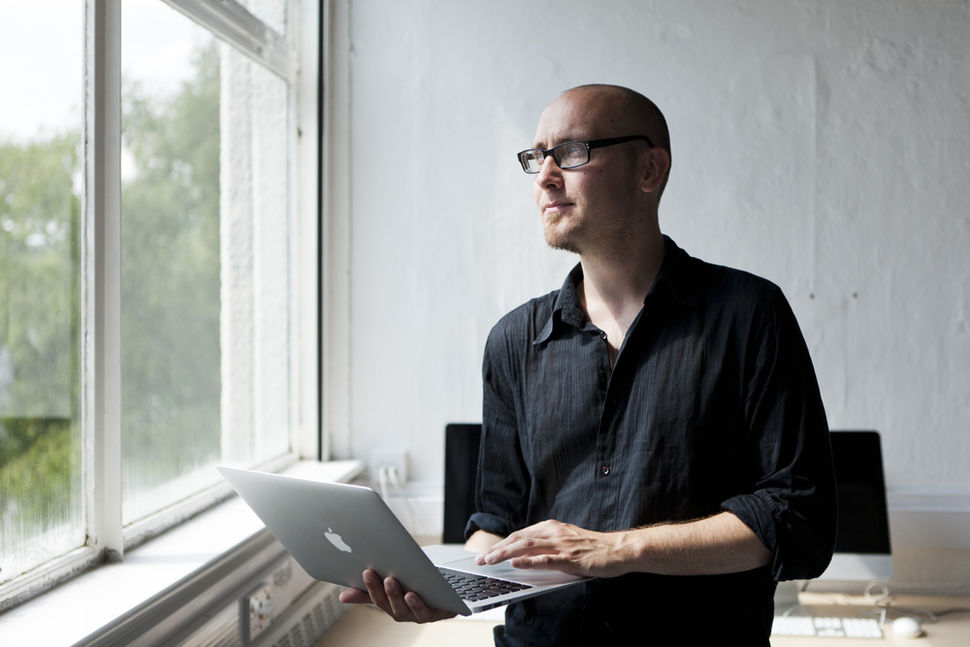
Jussi Parikka MADE BY is the Institute’s series of interviews that allows artists, designers, thinkers and doers to unfold their creative process in their own words.
Jussi Parikka is a Professor in Technological Culture & Aesthetics and is one of the discussants at the Institute's TALK SOCIETY event on 11 February. Find out more about the event here
I work as a media theorist and write about digital culture, its history, politics and aesthetics. I’m interested in why and how media technologies shape our modern world, but I’m also interested in “new media” as a part of a longer media history, even media archaeology.
I’m fascinated by the notion of the archives changing in relation to media’s technological change: issues of storage, archivability, and the changing nature of cultural heritage institutions in the context of the data society. Questions of cultural heritage of media technology are both a practical issue and a philosophical problem. How can we come up with innovative ways of sustaining a presence of the past so we always have a reminder of how things can be done differently – against the hegemony of the fetish of the new?
I like to focus on quirky odd ideas, the unusual and the anomalous - computer viruses instead of Silicon Valley success stories, or the underbelly of digitality through electronic waste than the utopic digital economy discourses. This is where the theme of media archaeology kicks in: to look at new media culture in ways that take into consideration how rich the past has been, and how it conditions what we consider new.
The underpinning idea of my forthcoming book A Geology of Media is to remind us of the geological materiality and waste load of media technologies. I’m extremely concerned about the issues of waste and energy. Another one of my books looks at Finnish pioneer of media and sonic arts, Erkki Kurenniemi. Driven by what one could call archival-mania, he has recorded much of his life in audio, video and written formats.
My work resonates with many contemporary art discussions, especially in the field of media arts. I’m glad when an artist comes to me and tells me how my texts have inspired them. The best feedback is having your work act as a trigger or catalyzer.
Research and the creative process are about managing time: sustaining ideas, enabling their growth and sharing them. Thinking also needs friends, support, and institutions that recognise your work. Hence, I’m a firm believer of free education and universities that grow critical thinkers. As a cultural historian, working with practise-based students at the Winchester School of Art has been a fantastic opportunity. Great things can happen in an intellectual atmosphere where creative practise meets theory.
Finland has a great potential to develop more in the field of critical media theory. Our education system and digital know-how have an international reputation, so why not combine the two? The trick is to participate in contemporary international debates about digitality and its future with ideas that are both critical and productive.
My dream is to be able to continue working with people who gain something affirmative and productive from my work and who inspire me, too. I also dream of lovely creative spaces and time for thinking, which is becoming of a rare luxury with academics having less time to focus on specific research projects. I would also like to travel less. As philosopher Gilles Deleuze once remarked: being a nomad doesn’t mean having to move physically. The movement can also be inside your head.
